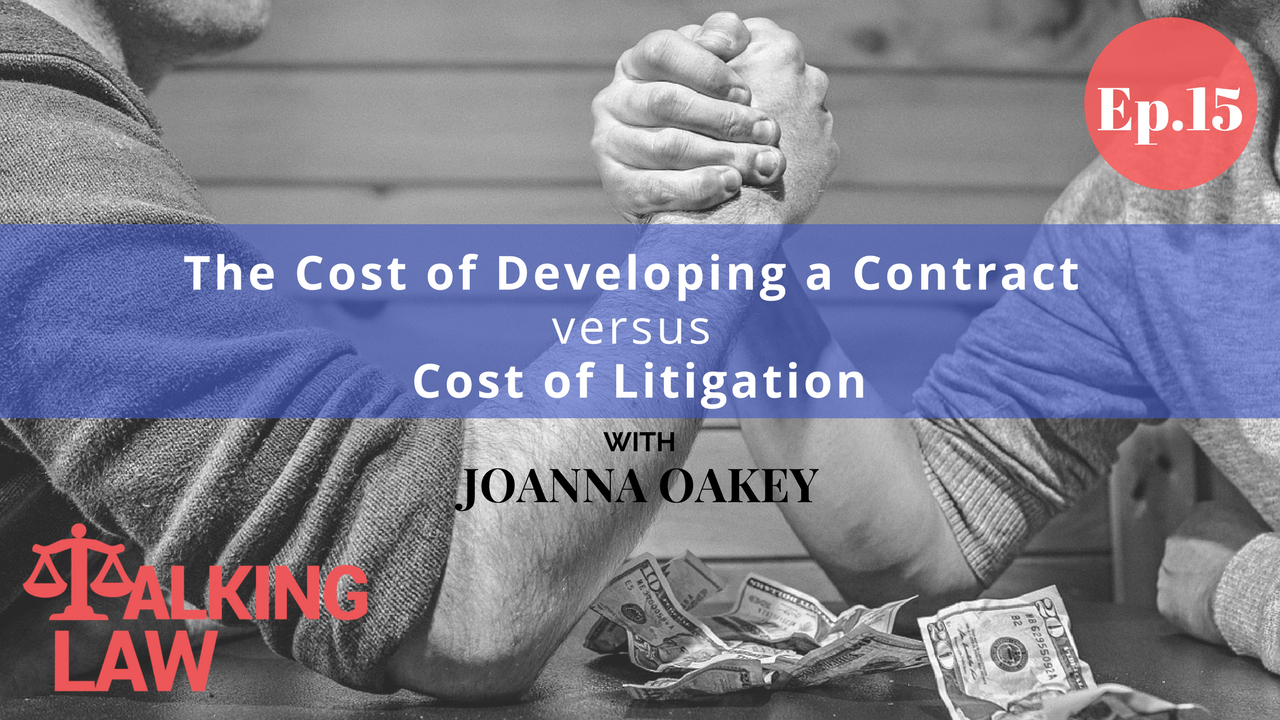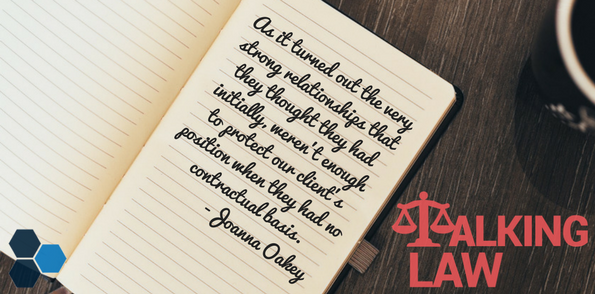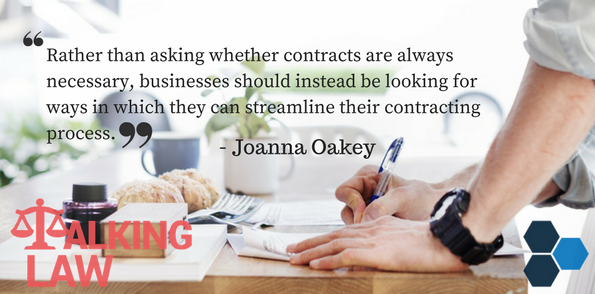
Whilst you might have the strongest relationships in place now, tomorrow a business might be sold, there might be new management, we might have a new GFC. Whilst a contract won’t prevent all problems from ever arising, it will at least put you in a much more powerful position to demand compliance with an agreement by another party.
Today I wanted to talk about the cost benefit analysis of an organisation spending proper time and effort in developing (and properly finalising) a contract. The underlying driver of this topic is that often businesses become so busy that having the time to develop a contract properly is seen as an unnecessary luxury, unless there is some major risk that warrants the time involved.

As a lawyer, I am in a position where I see lots of examples of problems caused by a lack of proper contracts, or by the use of an inappropriate contract. People rarely come to visit their lawyer to discuss all the contracts that are working perfectly! So whilst I might not be in the best position to talk about the contracts that are most often successful, I can certainly reflect on areas of regular argument.
An example that comes to mind of issues caused by the failure of parties to reach a suitable contract was a case in which our client was a supplier to a large European owned organisation. Our client, as the successful tenderer for a large contract, was promised a large volume of work in return for setting up a new interstate office to service the customer. The contract negotiations went on and on and on, and in the meantime our client was under significant pressure to start works, which they decided to do without the finalization of the contract, based on the “very strong” relationships that they had in place. Once the works started, the imperative to sign the contract was gone, and the drafts were thrown in a bottom drawer and were never finalised or signed (which is unfortunately, a familiar story).
A year later, the inevitable happened. The customer restructured the business, re-allocated funding, and vastly reduced the value of all future works with our client. Whilst the funding was promised to be returned to the project in coming financial years, this was of course of little help to our client who was now stuck with the costs of the new office and staff, without the income to match. As it turned out, the “very strong” relationships weren’t enough to protect our client’s position, when they had no contractual basis upon which to force the European head office to stand by those relationships. Whilst there were still avenues available to our client to enforce their understanding of the agreement, our client didn’t want to endanger their commercial position with their customer. Consequently they took the massive financial hit that the changed position caused, they downsized, they reduced staff. And in reality, it was the shareholders, staff and other stakeholders who bore the brunt of the decision not to finalise that contract.

This is certainly not an unusual issue for a business to face. I see problems caused by lack of contract clarity come across our desks daily. Ranging from situations like this example where contracts have been created, but never finalised, through to situations where contracts have been finalised, but simply haven’t included enough detail about the most important elements of the relationship – such as for example clear detail about the service or product delivery expectations, or payment, or termination rights.
So in answer to the question Im often asked, as to the cost of developing a proper and effective contract versus the cost of a dispute, I would say that there is no comparison. You can’t tell today what a contracting party will do tomorrow, or next year. Whilst you might have the strongest relationships in place now, tomorrow a business might be sold, there might be new management, we might have a new GFC. Whilst a contract won’t prevent all problems from ever arising, it will at least put you in a much more powerful position to demand compliance with an agreement by another party.
Rather than asking whether contracts are always necessary, businesses should instead be looking for ways in which they can streamline their contracting process, so that engaging in the contracting process is efficient and effective.
In the next episode I will discuss ways to streamline the contracting process.
But for now, I’d like to leave you with some action steps to help you avoid contract disputes:
- 1. Brainstorm the risks – Before entering any relationship with another party (be it a supplier, customer or otherwise) do a quick brainstorm of the potential areas of risk in this relationship, and jot down a few notes about the most important things to be covered off contractually
- 2. Get contractual coverage – Ensure each of the items above are included in a contract, in sufficient detail
- 3. Get Help – Get help if there are any areas of exposure that you aren’t sure of (many people think a template is sufficient. Or getting a lawyer to look at the indemnity clauses is enough. Unfortunately the real crux of a contract often sits in the statement of work or schedule or other parts of the contract that are drafted by people in the business and that then sit outside of the main body of the agreement – and often much pain can be saved simply by having a lawyer cast their eyes over those areas to ensure that there isn’t ambiguity, and that all the important bases are covered.)
- 4. Get it signed – Make sure the contract is finalised before you allow performance under the contract to start.
As a quick recap, in this episode we talked about the benefits for an organization in spending proper time and effort in developing (and properly finalising) a contract – versus the costs when things go wrong because of a poor contractual approach.

If you would like more information about this topic, head over to our website at talkinglaw.com.au for a free download on the action steps I talked about to help avoid contract disputes.
Through that website, you will also find details of how to contact our lawyers at Aspect Legal if you would like help with any contracts you are in the process of negotiating, assistance with contract issues that you need help in dealing with, or if you would like to get ahead of the curve and look at revamping your contracting process as a whole to be more efficient and effective.
And finally, If you enjoyed what you heard today, please pop over to itunes and leave us a review.
Thanks again for listening in – See you next time!














